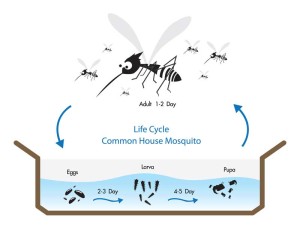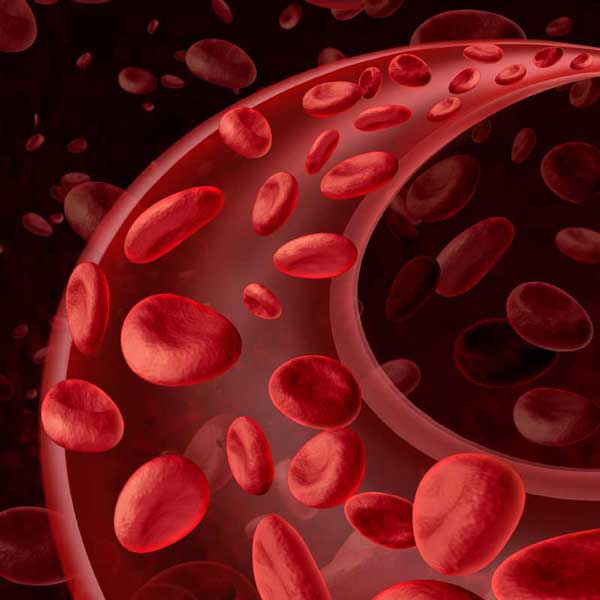Mosquitos are thought to have inhabited the world for over 170 million years. They serve as major food source for fish, birds and other insects. There are over 3,500 species of mosquitoes in the world, of which 175 are found in the United States. It is believed that Alexander the Great was killed from a disease caused by a mosquito bite and he is not alone. According to the World Health Organization, mosquito bites result in the deaths of over one million people each year. The majority of these deaths are caused by malaria, a mosquito borne disease. The more we understand mosquitoes, the better we can become at mosquito control.
Life Cycle
 Female mosquitoes have an average life span of two months and males live less than 10 days. The female mosquito can lay up to 300 eggs at a time and require standing water to do so. The eggs are dropped in bunches on the surface of water, called mosquito rafts, and only an inch of water is necessary for this breeding. The eggs hatch into larva within 10 days. The larva requires oxygen to survive and can even be seen swimming up and down the surface to breath. The larva will feed off algae, plankton, and other microorganisms in the water while it develops. Soon the larva turns into pupae where the metamorphosis of the mosquito is complete over the course of 1-4 days. The pupae emerge from the water as an adult mosquito where it rests to dry out and harden. Pretty crazy right?
Female mosquitoes have an average life span of two months and males live less than 10 days. The female mosquito can lay up to 300 eggs at a time and require standing water to do so. The eggs are dropped in bunches on the surface of water, called mosquito rafts, and only an inch of water is necessary for this breeding. The eggs hatch into larva within 10 days. The larva requires oxygen to survive and can even be seen swimming up and down the surface to breath. The larva will feed off algae, plankton, and other microorganisms in the water while it develops. Soon the larva turns into pupae where the metamorphosis of the mosquito is complete over the course of 1-4 days. The pupae emerge from the water as an adult mosquito where it rests to dry out and harden. Pretty crazy right?
Feeding Habits
Female mosquitoes are the only mosquitoes that actually bite humans. Male mosquitoes typically feed on fruit and plant nectar. Female mosquitoes bite humans and other mammals because they require the nutrients from blood to develop their eggs. The female mosquito must find a blood meal every two to three days to reproduce eggs. The female mosquito finds her victim through a combination of chemical, heat, and visual sensors.
Helpful Mosquito TipsThese are some of the things you can do yourself around your home to prevent mosquito infestations:
|
Why Do Mosquitoes Bite Some People More Than Others?






